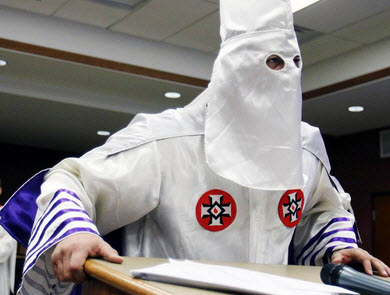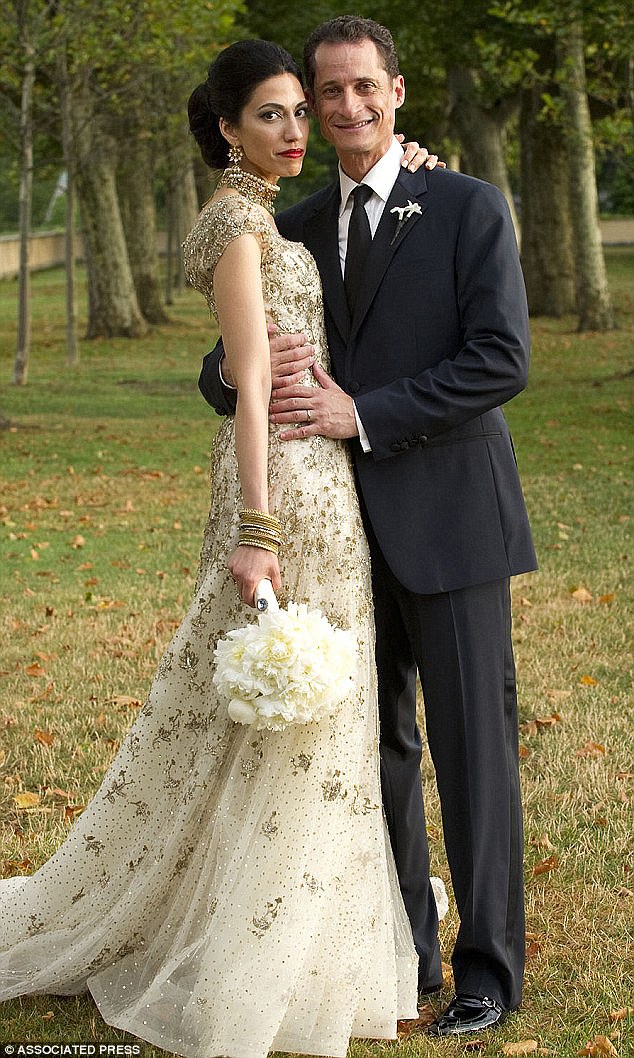On a recent trip to Tennessee, I stopped by The Hermitage, the home and plantation of Old Hickory himself, Andrew Jackson, located about 15 miles south of Nashville. It’s a wonderful house and property, complete with gardens, leisurely strolls around the property, and an excellent adjunct museum.
Like many others, the only thing I ‘knew’ about Jackson was that he was a bad white guy who deracinated part of the South of Indians vis-à-vis the ‘Trail of Tears’. Jackson was a war-scarred General, who led the successful Battle of New Orleans against the British, a decisive military victory at the tail end of the War of 1812.
A man of humble origins, Jackson eventually rose to the Presidency, but was always something of a political loner and outsider.
The museum section of The Hermitage outlines Jackson’s entire life, and the immediate thing that struck me in the museum’s section on Jackson’s years in politics, is the uncanny parallels to Donald Trump.
There’s an excellent 30 minute (or so) video at the museum with Jon Meacham and Univ of TN History professor Daniel Feller on Jackson’s iconoclastic political career, indirectly alluding to the poignancy of Jackson’s perspective for today’s political scene. Meacham is a liberal, but also a darn good historian, and notes how Jackson “wasn’t like Jefferson, reading Cicero”, but was a pragmatist, an embodiment of sorts of that uniquely American school of philosophy, pragmatism, and someone who trusted his gut instincts. “Until Jackson,” Meacham adds, “every President was either an aristocrat or an Adams from Boston.” Meacham also notes, “Jackson is the most important President between Washington and Lincoln.”
A grass roots organization of “Jacksonians” organized and rallied to get Jackson to run for POTUS, an event now attributed as being the first instance of ‘mass politics’. It was around this time that newspapers began aligning themselves with candidates, a political tradition that continues to this day. (It’s worth noting that the Jacksonians eventually became the ‘Demcratic Party’, the first political party in the U.S.)
Reviled by Washington elites, insiders, and monied interests, Jackson was a charismatic, very un-P.C. individual. He took personal insults quite seriously (to the point of having multiple duels), and could hold a grudge for a lifetime.
He was pro-capitalist, but deeply suspicious of undue, unaccountable political influence being wielded into government by any institution, particularly banking interests.
Google “trump andrew jackson” and you’ll see a ton of articles drawing the comparison. For example, in his Trump Derangement Syndrome piece in The Atlantic, “The Mind of Donald Trump”, Dan McAdams draws the comparison:
In the presidential contest of 1824, Andrew Jackson won the most electoral votes, edging out John Quincy Adams, Henry Clay, and William Crawford. Because Jackson did not have a majority, however, the election was decided in the House of Representatives, where Adams prevailed. Adams subsequently chose Clay as his secretary of state. Jackson’s supporters were infuriated by what they described as a “corrupt bargain” between Adams and Clay. The Washington establishment had defied the will of the people, they believed. Jackson rode the wave of public resentment to victory four years later, marking a dramatic turning point in American politics. A beloved hero of western farmers and frontiersmen, Jackson was the first nonaristocrat to become president. He was the first president to invite everyday folk to the inaugural reception. To the horror of the political elite, throngs tracked mud through the White House and broke dishes and decorative objects. Washington insiders reviled Jackson. They saw him as intemperate, vulgar, and stupid. Opponents called him a jackass—the origin of the donkey symbol for the Democratic Party. In a conversation with Daniel Webster in 1824, Thomas Jefferson described Jackson as “one of the most unfit men I know of” to become president of the United States, “a dangerous man” who cannot speak in a civilized manner because he “choke[s] with rage,” a man whose “passions are terrible.” Jefferson feared that the slightest insult from a foreign leader could impel Jackson to declare war. Even Jackson’s friends and admiring colleagues feared his volcanic temper. Jackson fought at least 14 duels in his life, leaving him with bullet fragments lodged throughout his body. On the last day of his presidency, he admitted to only two regrets: that he was never able to shoot Henry Clay or hang John C. Calhoun.
Does Jackson’s personality and temperament sound familiar?
The similarities between Andrew Jackson and Donald Trump do not end with their aggressive temperaments and their respective positions as Washington outsiders. The similarities extend to the dynamic created between these dominant social actors and their adoring audiences—or, to be fairer to Jackson, what Jackson’s political opponents consistently feared that dynamic to be. They named Jackson “King Mob” for what they perceived as his demagoguery. Jackson was an angry populist, they believed—a wild-haired mountain man who channeled the crude sensibilities of the masses. More than 100 years before social scientists would invent the concept of the authoritarian personality to explain the people who are drawn to autocratic leaders, Jackson’s detractors feared what a popular strongman might do when encouraged by an angry mob.
A GOPE interpretation of the Trump/Jackson parallel can be found in National Review, where Nicholas Gallagher writes:
Trump’s positions follow the contours not of movement conservatism but of American folk nationalism, often known as Jacksonianism. As Walter Russell Mead, my boss over at The American Interest, has noted, Jacksonians characteristically emphasize anti-elitism and egalitarianism while drawing a sharp distinction between members of the folk group and those outside it. In domestic policy, this translates to tough-on-crime stances and stubborn adherence to traditional views on social issues (and, historically, opposition to civil rights), and to advocacy of government assistance for “deserving” members of the folk group. Looking abroad, they are uninterested in Wilsonian nation-building projects or promoting global order, but if they feel the nation is threatened, they are willing to fight back by whatever means are necessary. Sound familiar yet?
Jacksonians don’t fit easily into either the liberal or the conservative camp; they are the “radical middle.” They also don’t comport with regional stereotypes. Jacksonians are not synonymous with southerners or rednecks: Trump has performed best in northeastern states and prospered in cities. And while Trump is supported by racists (especially by the ugly little band of Twitter trolls known as the alt-right), Jacksonians cannot be dismissed as such en masse. In the past, Jacksonians have been found at the heart of the Confederacy, but they also formed the core of the Union Army, and later the one that defeated Hitler. Their motivations and history are too complex — and they comprise too wide a swath of the American public — to be rightly considered atavistic or a sectional rump.
How then does Gallagher square his opinion of the Alt Right as an ‘ugly little band’ with the Jacksonian strain to Trumpism? As we have seen, particularly post-Reagan, is how dreamy-eyed, late 20th century, Republican visions have become increasingly blurred, leading the ‘America as creed’ chant to completely supplant any remaining vestiges of an ‘America as northern European ethnic culture’ chant. Gallagher notes:
Many Republicans, especially those of the “neocon” persuasion, went a step farther by denying the existence of American nationalism outright. This usually involved their contrasting nationalism, which was something bad that others (usually: Europeans) had indulged in, with patriotism, which was presented as good and American — and universalistic and ideal-based. In his first inaugural address, President George W. Bush declared: “America has never been united by blood or birth or soil. We are bound by ideals that move us beyond our backgrounds, lift us above our interests, and teach us what it means to be citizens.”
Drowning out the ‘ugly little band’ of alt-right voices has, however, led to the current Trumpian backlash:
The conservative movement, which reveres tradition, forgot that there were other traditions of how to view one’s country and understand what binds us together. The idea that America has never had a sense of national folk identity is just plain false — and making political and policy judgments on that assumption was madness. The reappearance of naked nationalism has been a shock to those who spent decades maintaining that America’s unique and unqualified achievement has been to synthesize love of country and universal democratic ideals. Jacksonians have consistently felt that some combination of ethnicity, where you were born, and (though Bush didn’t mention it) faith unite the American people, though not quite in the same way as — and generally much more expansively conceived than — the European “blood and soil” ideologies to which President Bush alluded.
Gallagher attempts to the thread the needle…
As a form of nationalism, Jacksonianism has had two saving graces. First, it’s proven to be expandable in a way that no other folk nationalism in history has been. Although it was originally carried to America by the Scots-Irish who settled the frontier, the Jacksonian understanding of the folk group has expanded in time beyond its white, Anglo-Saxon, Protestant roots to include millions of immigrants from far-flung places, such as Irish Catholics and Eastern European Jews. If this process was rougher than is sometimes remembered, and if America has not yet achieved total reconciliation on racial matters, nevertheless this record of assimilation is an immense and unprecedented achievement in the bloody annals of a fallen world.
Ah, and there’s the rub. Can Jacksonianism satisfactorily expand beyond its white, Anglo-Saxon, Protestant roots? It’s not just our early roots, we might add: America has been overwhelmingly white, Anglo-Saxon, and Protestant up until 1960. The first settlers, and then the Founding Fathers’ subsequent generations were Anglo-Saxon Protestants. After them came Scandinavian, Nordic, and German Protestants. To show how challenging assimilation can be even among white Protestants from different countries, it’s worth pointing out the notable assimilation problems with the first wave of German immigrants into the U.S., in the PA region. Similarly, after much more systemic assimilation difficulties, the waves of Irish and southern Italians eventually began assimilating in the early 1900s, becoming ‘white’ (so to speak), although the more collectivist ethos of Catholicism, with its pathological altruism, has swung American politics significantly further to the Left.
As far as the elephant in the room, the ‘Are Jews white?’ question is an ongoing one. There was much less of an assimilation problem with Western European Jews, but the tumultuous history of mass immigration of Eastern European Jews into New York and elsewhere is another story. Cumulatively, and without question, American Jews have wielded a greatly disproportionate influence upon American institutions, moving them quite farther Left.
Gallagher concludes his article with a rather platitudinous warning to GOPE:
While conservatives are more than within their rights to write off Trump, they would be neither wise nor justified to write off the Jacksonians. They may be disgusted with Trump’s antics, and they may find some Jacksonian positions inchoate, wrongheaded, or unfulfillable. But after the dust from this election settles, it will be urgently necessary to once again fuse patriotic, idealistic, and inclusive conservatism with Jacksonian nationalism.
Whether Trump wins or loses, the neo-Jacksonian element of Trump’s Alt-Right constituency will likely evolve into a new and potential formidable political force.





